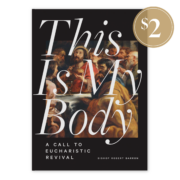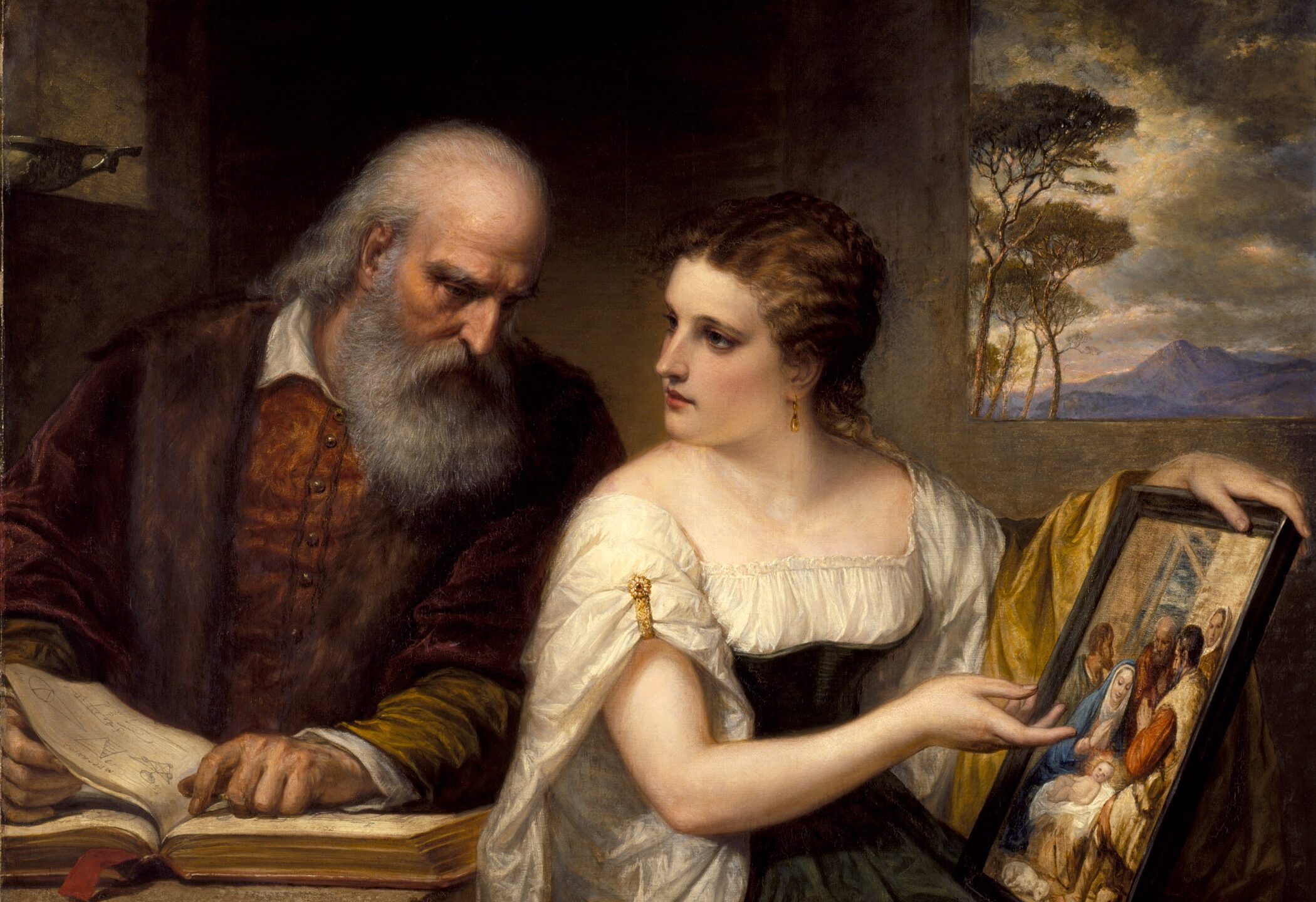I got a fever, and the only prescription is more cowbell—philosophy cowbell, I mean.
Philosophy as the “love of wisdom” lies at the heart of education. But few educators seem to know this. Philosophy involves a level of thinking that transcends a scientific mode of analysis (“how it works”) and contemplates being as such. But many of today’s educated elite do not even know what that means. While being experts in the former, they are thoroughly unacquainted with the latter. And that is partially the fault of contemporary education that is too scientistic (that scientific knowledge gives you an exhaustive account of the way things are) in its approach. Teachers need to do something about that or else—like Will Ferrell in the famous SNL skit—I will keep banging on my philosophy cowbell until something is done.
In his recent article “Some Critics of Religion Need to Pick Up Their Game,” Bishop Barron took issue with accusations of obfuscation and speaking philosophical “gobbledygook” in his interview on Lex Fridman’s podcast, telling those critics to go and study some philosophy. Lex Fridman is a popular podcaster and research scientist and lecturer at MIT. He’s one of today’s educated elite, but I am not surprised by the seemingly confused look on his face when listening to Bishop Barron describe God as ipsum esse subsistens (the sheer act of “to be” itself). I have to admit sympathy for Lex, as many of us were never introduced to philosophy, let alone its mode of analysis.

A quick read through some of the nasty comments on the Fridman interview ought to convince us all that education needs more philosophy. The comments elicited memories of the “Philosophy of Mind and Body” class I took as an undergrad with many science and tech students—the Lex Fridman types. Most of these students resented the university for requiring them to take a philosophy class. While I was eager to jump into the course, many of them seemed to think it a waste of time. And you bet I never let them know that I was majoring in it. However, my embarrassment soon waned when I discovered that many of them just did not understand philosophy in the first place.
This was surprising because many of them had attended Catholic schools up to that point. Philosophy has a central place in Catholic education, but I guess that is no longer the case. I was fortunate to attend a Catholic high school that offered philosophy as an elective. In fact, it was the class I was most eager to take, and I did not understand why the school did not make it a required course. Science has taken philosophy’s place. Even in most Catholic schools, Aristotle has been replaced by Francis Bacon as the grandfather of modern education. The Aristotelian desire for understanding has been replaced by the Baconian desire for power and control. As Catholic theologian Reinhard Hütter notes in his book John Henry Newman on Truth and Its Counterfeits: A Guide For Our Times, most education now models the “Baconian polytechnic,” forming students in the ways of science but ignoring philosophy. However, such an education lacks the breath of vision afforded by philosophy. Instead, it makes students into scientistic Cyclopes, deformed one-eyed giants too weak in their vision to see a higher light.
In many respects, before I took philosophy, I was a Cyclops too. But my high school philosophy teacher blinded me through dialectic and, out of mercy, gave me a higher vision. Like Socrates, he was a midwife of the intellect.
At the risk of sounding arrogant myself, I was astonished by my classmates’ arrogant dismissal of philosophy. They did not realize the inevitability of philosophy. Their utter confidence that a reductive materialism (the view that matter and not mind is the ultimate reality) was the only tenable account of reality; their sense that the epistemic methodologies of the natural sciences are the only ones capable of giving us knowledge because there is nothing really beyond their scope; their lack of historical knowledge, including historical knowledge of their own disciplines; and their indifference to reason’s inherent upward flight to first principles and, ultimately, to God, really ticked me off. As a declared philosophy major, I was afraid such Cyclopes would eat me for lunch. But thank goodness for my philosophy professor. Like Odysseus in Polyphemus’ cave, he outwitted and blinded them in such a way as to throw into question their naive, scientistic, mechanistic picture of the world. And, like Socrates, he was the midwife of their intellects, or at least I hoped.

Interestingly, my professor was not opposed to materialism. Getting to know him outside of class, I learned that he thought some form of materialism was the most plausible account of reality. But the difference between him and my classmates was that he was not naive about it. An alumnus of the University of Pittsburgh, a university with a stellar philosophy department, he was well-trained in philosophical discourse and the history of philosophy and so able to ask questions beyond the scope of science. He was also intellectually humble, still pondering the merits of others’ accounts of reality. He did not reduce all discourse to the scientific one, but respected the discourse called metaphysics. And while he never told me about his religious practice, I could tell from his desire to understand that he was indeed very close to God. I upheld him as a truly educated man, and I hoped to become like him as a teacher.
However, many high schools do not know what to do with philosophy majors like myself. Before I taught, a highly regarded theology teacher who had a PhD in philosophy from Marquette advised me to study theology at the graduate level. He told me that he struggled finding a teaching job at the various Catholic high schools because they would not let him teach theology without a theology degree. But so much philosophy goes into theology that it is hard to believe that many theology majors really understand their discipline without a philosophy background. How can one explain the difference between homoousia and homoiousia without an understanding of ousia, a philosophical concept? But, alas, this only goes to hint at the poor quality of theological education in many Catholic schools.
The schools that seem to respect philosophy majors are burgeoning classical school networks. Philosophy is highly regarded in such programs, and it would serve the Church well to promote such initiatives. Otherwise, we will continue to be frustrated when trying to explain to people, like my classmates who spent most of their lives in Catholic schools, the meaning of things like God as ipsum esse subsistens.
Until then, I will continue to perform the hell out of my philosophy cowbell, hoping for the day when contemporary education will accept me in the band.
